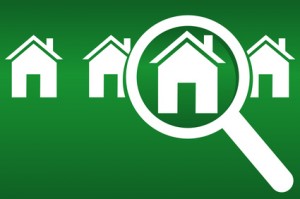The median list price in June for single family homes listed for sale in Geneva is $349,900. The list prices dropped by -4.11% from the previous month. The current price per square foot for homes listed for sale in Geneva is $154. The median sale price for single family homes in Geneva is up about 2% from the previous month to $318,500. The graph below represents the current data for Geneva showing the fluctuation in both the current list and sale prices for single family homes.
To view all of the homes listed for sale and to view the official listing information and pictures for Geneva homes for sale click here or visit WheatonHomes4Sale.com and use the free home search engine.
Information and service provided by Katie Oakes at Keller Williams Premiere Properties.
Real estate based blog provided by The Champagne Realty Group focusing on providing accurate information on the local Wheaton and Glen Ellyn housing market. Visit WheatonHomes4Sale.com for more in-depth analysis of our local real estate market and to view all homes for sale in your area. Stop by TheChampagneRealtyGroup.com to learn more about our team. Email KatieOakes@KW.com for more information or to setup an appointment with our team to discuss buying, selling or investing in real estate!
Monday, June 18, 2012
Tuesday, June 12, 2012
Real Estate News: Do We Need Freddie Mac and Fannie Mae?
Real Estate News: Do We Need Freddie Mac and Fannie Mae?
Senate Banking Committee Chairman Tim Johnson, D-South Dakota, was quoted in Reuters saying he is concerned about consequences that might happen if the government completely washes off its hands. He said that historic low mortgage rates, now around 4 percent, would likely inch upwards. Peter Wallison, an American Enterprise Institute fellow, argued in favor of a private system to enable investors. Right now, taxpayers are forced to take the risks the government is taking, he said.
It will be interesting to see how this debate shakes out. According to Reuters, the first test will come at the month’s end when the conforming loan limit draws back to pre-financial crisis levels. Lawmakers were warned by industry experts against reducing the size of government-backed mortgages. According to a Wall Street Journal story, without lawmakers’ intervention the maximum number of loans backed by Fannie Mae and Freddie Mac would drop Oct.1. The paper reported that Democrats representing pricey coastal areas and real estate lobbyists are advocating to block the change, but they have failed to make any headway. Only a handful Republicans are in their corner, the others want to reduce the mortgage market’s dependency on the government, the paper reported. For potential homeowners, this would be a good one to follow. At a time when lending has come under strict scrutiny, it's easier to get the government-backed mortgages than seeking your luck with a private lending agency.
Mortgages are Hard to Get
Buying a house is not as easy as it was a few years ago. And you may be in for a lot of heartburn when you shop for a loan. According to a USA Today story, tight lending standards have become a nightmare for consumers trying to get a loan. The paper reported that home lending standards are at its strictest in decades, making it a struggle for consumers. Current homeowners also share the pain while looking for refinancing because of dwindling equity in their homes. The only mantra to get a quick loan these days seems to be enough savings for a hefty down payment and stellar credit scores. USA Today says these days, despite near-perfect credit scores, consumers "face more demands to prove their incomes, verify assets, show steady employment and explain things such as new credit cards and small bank account deposits.” And despite the mountain of paperwork, you may still not qualify for the sweetest deal around. It’s a vicious cycle. On the one hand, lenders want to make sure that consumers are absolutely able to meet their financial commitments thereby cutting down on foreclosures and arresting falling home prices. On the other hand, the stringent rules are discouraging customers who have the means and perhaps hurting the industry’s recovery.
Orlando Bucks National Trend
Now for some good news. Home prices in Disney’s home, Orlando, jumped 15.1 percent in the last year, according to Propertywire.com. This at a time when Florida, along with California and Arizona, has been declared the worst hit by the housing crisis. Orlando is a favorite destination for Europeans and folks from other parts of the world. And they could have a major role in those numbers. What’s also comforting for the market is that home prices have increased 21.2 percent since January last year. So, if you are looking to invest, this market may not be a bad one to keep an eye on.
Information provided by your Wheaton and Glen Ellyn area real estate expert, Katie Oakes with Keller Williams Premiere Properties.
Visit WheatonHomes4Sale.com for more information homes for sale in your area...start browsing today!
Friday, June 8, 2012
Winfield Housing Market 2011-2012
The Winfield housing market is following suit to many other towns like Wheaton and Glen Ellyn in DuPage County. Homes listed for sale year over have dropped about 25% while homes under contract have gone up by about 35%. Start your home search now before all the great deals are gone and take advantage of these LOW rates by viewing homes for sale at WheatonHomes4Sale.com.
Click the graph for more detailed information on the Winfield Housing Market.
Information provided by Katie Oakes with Keller Williams Premiere Properties.
Thursday, June 7, 2012
Economy Still Driving Low Mortgage Loan Interest Rates
Despite the pall and gloom surrounding the nation’s real estate market, there are pockets across the country showing some recovery signs. A new economic index released by the National Association of Home Builders measuring improvement in areas such as housing permits, employment and housing prices for at least six months found a string of cities slowly emerging from the housing slump. On the spotlight are: Alexandria, LA; Anchorage, AK; Bangor, ME; Bismarck, ND; Casper, WY; Fairbanks, AK; Fayetteville, NC; Houma, LA; Midland, TX; New Orleans, LA; Pittsburgh, PA and Waco, TX. “By examining key indicators of home prices, employment and housing permits data, we are using a comprehensive, but conservative method in determining which markets are improving,” said NAHB Chief Economist David Crowe in a press release. “Last year at this time, there was not a single market that showed improvement using these criteria, and now we can point to 12 examples of growth.” Crowe said many of the states represented in the list were energy-rich areas with strong employment driving housing demand. Whatever the reason, any sign of growth is a bonus these days and we can all surely hope that the good showing in these cities would rub off on its neighbors.
Low Mortgage Loan Interest Rates Continue
Yet more nudging for potential homebuyers from the mortgage industry. Mortgage loan interest rates plummeted to the lowest level in four decades this week, according to Bloomberg. The average rate for a 30-year fixed loan slid 4.12 percent, down from 4.22 percent earlier, according to Freddie Mac. That’s the lowest in the company’s history since 1971, according to Bloomberg. The average rate for a 15-year fixed loan tumbled to 3.33 percent. But are homebuyers getting lured by the attractive interest rates? Apparently not, according to Patrick Newport, economist at IHS Global Insight. “The reason interest rates are dropping recently is that the outlook for the economy has gotten weaker,” Newport told Bloomberg. “A smart person would be very careful about buying a home unless he thinks his job is very secure.” Looks like a lot of people are considering the economic outlook. According toMortgage Bankers Association, applications for mortgages decreased 4.9 percent in the week ended Sept. 2.
Refinancing Mortgage Loans May Not Work
Remember all that talk about making refinancing easier and stimulating the dreary housing market? A recent report by the non-partisan Congressional Budget Office said that it would “not address many of the problems facing the U.S. Housing market,” and the benefits would be not as significant when compared to the size of the housing market, the mortgage industry and the overall economy. The plan would be expensive for mortgage investors even though it would help borrowers and lower federal guarantee costs, the report said. The CBO paper would ruin the chances of an already shaky Team Obama finding broad support for its refinancing proposal, according to Reuters. The White House plan aims at cutting borrowers’ monthly payments and increasing their cash on hand. CBO estimated that it would provide $7.4 billion in savings for borrowers in the program’s first year, but private investors would take a hit of $13 billion to $15 billion. From the looks of it, it seems highly unlikely that the White House’s proposal will find supporters in Washington. We all may have to wait for some more new ideas to come through.
Group Warns Against Further Housing Market Decline
Consumer advocacy group National Mortgage Complaint Center wants Congress to act on legislation to restore buyer tax credit. The group, which follows and responds to complaints in the residential real estate market, is asking all qualified buyers be offered a tax credit. The group came down heavily on the Obama administration, calling the President’s attempts to help homeowners in foreclosures or loan modifications “an utter failure and a waste of taxpayer money.” "We desperately need to stabilize the US residential real estate markets, and we think restoring the Federal Tax Credit for a home purchase would a huge step in the right direction,” the group said in a press release. NMCC suggests that the tax credit be increased to $15,000 and should apply to everyone including investors.
Information on Wheaton Homes For Sale and Glen Ellyn Homes For Sale provided by Katie Oakes Professional Resume at Keller Williams Premiere Properties. Visit WheatonHomes4Sale.com now to start viewing homes for sale in your area.
Tuesday, June 5, 2012
How do I Find out How Much a House in My Neighborhood Sold For?
A CMA will Show what Prices Houses Sold for in Your Neighborhood
If you’re looking to sell your home, a real estate agent will be able to give you the prices houses sold for in your neighborhood. This will help you determine how much you should list your home for.
If you’re selling your home, you need to get the best and most accurate pricing data you can find. The best way to do that is by contacting a real estate agent. There is typically no charge for getting specific information on how much houses in your neighborhood sold for. A realtor will go through your home and provide a Comparative Market Analysis (CMA). This is typically free of charge, and there is no obligation for you to list with anyone who prepares the Comparative Market Analysis. The CMA will provide information on how much several comparable houses in your neighborhood sold for.
Just ask a local real estate agent to give you a Comparative Market Analysis or information on the prices of houses that sold within the past three months in your neighborhood. You'll also want to know which of the houses sold in your neighborhood were short sales and bank owned.
Using Tax Assessor’s Data to Find House Prices in Your Neighborhood
If you’re thinking about selling your own home as "For Sale By Owner” or if you’re just doing research out of curiosity for future planning, many counties have their real estate records online. These are typically found through the county tax assessor’s data. If your city doesn’t have this information available online, you could go down to the courthouse and look it up. Keep in mind that doing this research can be time consuming.
If you are hoping to sell your home without a realtor, there is one thing to consider when finding out how much houses sold for in your neighborhood. Statistically, For Sale By Owner homes usually sell for less and remain on the market longer than those represented by a licensed real estate agent. An agent would contact his or her network of realtors and potential buyers to quickly get the word out about your property, and your home would be listed in at least one Multiple Listing Service (MLS), giving other agents a way of finding out that your home is on the market. If you’re a good negotiator and willing to do a lot of leg work, you’ll be fine, but you could end up losing money in the long run.
Using Online Databases to Find House Prices in Your Neighborhood
If you’re not using a real estate agent and you don’t feel like making a trip down to the courthouse, you can read the property transfers in your local newspaper or research online databases where you can find the information you’re looking for. Many states have a public MLS that will show you comparable properties. One word of caution, though: the accuracy of online pricing databases can sometimes be a little questionable. Public records and search engines could give you an incomplete picture of the market, because they gather sold property data from public records, which can be outdated and incomplete.
Most Important Factors When Finding Out How Much a House Sold For
When you find out how much a house in your neighborhood sold for, don’t forget to truly compare your house to the houses for which you have data. Does your house really have similarities, and is it comparable in size? How many bedrooms and bathrooms does it have? Does your home have the same curb appeal? Have you done any bathroom or kitchen upgrades? Just make sure you only compare properties that are really comparable.
Finally, the easiest and fastest way to find out how much a house in your neighborhood sold for is to find a reputable real estate agent and have him or her provide a Comparative Market Analysis.
Info provided by Katie Oakes with Keller Williams Premiere Properties.
Subscribe to:
Posts (Atom)




